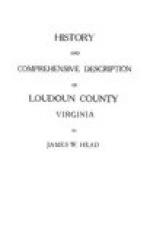While a large proportion of the home-seekers that had settled in the County immediately after the Revolution had received a rudimentary education, and had lived among communities which may be said to have been comparatively cultured, most of them were hardy, rough, uncultivated back-woodsmen, accustomed only to the ways of the frontier and camp. Many of them had served in the war of the Revolution and all of them in the border wars with the Indians. Though brave, hospitable and generous, they were more at ease beneath the forest bivouac than in the “living-room” of the log-cabin, and to swing a woodman’s axe among the lofty trees of the primeval forest was a pursuit far more congenial to their rough nature and active temperament than to mingle with society in settled communities. Their habits and manners were plain, simple, and unostentatious. Their clothing was generally made of the dressed skins of the deer, wolf, or fox, while those of the buffalo and elk supplied them with covering for their feet and heads. Their log-cabins were destitute of glass, nails, hinges, or locks.
Education during the early settlements received but little attention in Loudoun, and school-houses, always of logs, were scarcely to be seen. Schools were sometimes opened at private houses or at the residence of the teacher; but “book larnin” was considered too impracticable to be of much value.
While the standard of morality, commercial as well as social, was of a high order, few of these settlers were members of any church. Many of them, however, had been reared in religious communities by Christian parents; had been taught to regard the Sabbath as a day of worship, and had been early impressed with a sense of the necessity of religious faith and practice. Some of the prominent citizens encouraged these views by occasionally holding meetings in their cabins, at which the scriptures and sometimes sermons were read and hymns sung, but no prayers were offered. The restraining and molding influence of these early Christian efforts upon the habits and morals of the people was in every respect wholesome and beneficial. The attention of the people was arrested and turned to the study and investigation of moral and religious questions, and direction was given to the contemplation of higher thoughts and the pursuit of a better life.
In the meantime, other elements were introduced which effected a radical change in the habits of the people for both good and evil. The first settlers lived in the country, in the woods and wilds, whose “clearings” were far apart. Not one in ten of them had dwelt in any town, or even visited one having as many as a thousand inhabitants. And now there came the merchant, the lawyer, the doctor, and the mechanic, who resided in the towns which began to grow and to take on new life. Most of these had enjoyed superior advantages, so far as related to education and that worldly wisdom which comes from experience in older communities. Some of them had come from across the ocean and others from the large American cities, bringing with them manners, customs, furniture, and wares, of which the like had never been seen by the oldest inhabitant.




